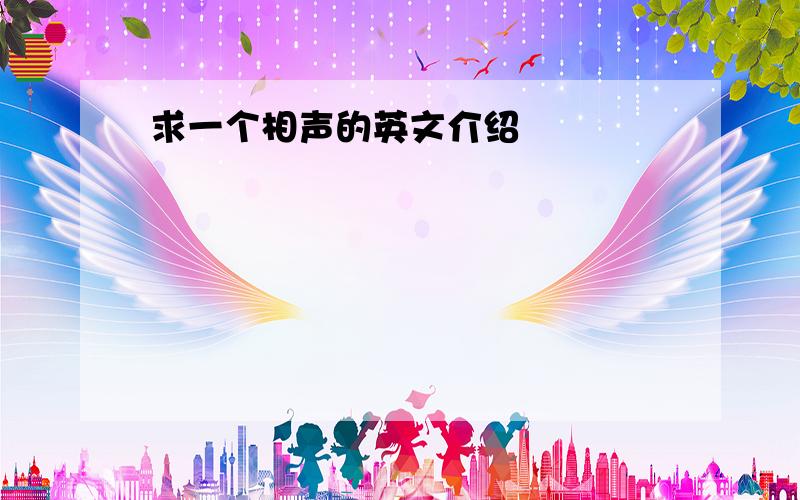求一个相声的英文介绍
来源:学生作业帮助网 编辑:作业帮 时间:2024/04/20 12:01:08

求一个相声的英文介绍
求一个相声的英文介绍
求一个相声的英文介绍
Definition:XiangSheng(cross talk)is a traditional Chinese comedic performance in the form of a dialogue or, much less often, a monologue or, even less frequently, a
multi-player talk show. The language, rich in puns and allusions, is used in a rapid, bantering style. Xiangsheng is one of China's foremost performing arts.
Modern xiangsheng is made up of four skills - speaking (说), imitating (学), teasing (逗), and singing (唱).
History
The term "xiangsheng" originally referred to the act of imitating someone's speech and actions. It rose as a performing act during the Ming Dynasty. From the Qing Dynasty to the 1920s, xiangsheng gradually developed to become a style of comedic monologue. Later xiangsheng came to be performed as a dialogue and sometimes even in groups of three or more.
The earliest xiangsheng comedian known by name is Zhang Sanlu (张三禄), who performed in the mid nineteenth century.
After the widespread use of Mandarin from 1949, the popularity of xiangsheng increased throughout the People's Republic of China. It is a standard feature of CCTV's annual New Year's Gala and other popular performing arts shows in China.
Xiangsheng as social commentary
The small scale and popularity of xiangsheng makes it second only to word of mouth in reflecting popular concerns. Hou Baolin and others have said that xiangsheng items are "works of comic nature which use satire and humour as their principal base. Their satirical content strikes home at contemporary malpractices and also often includes political satire." The role of xiangsheng in social commentary was seen after the fall of the Gang of Four in 1976, when xiangsheng performances provided the first open criticisms of the gang. After 1976, xiangsheng has also provided satire concerning corrupt officials and members of the Communist Party of China, although criticism of the Party as an entity remains off limits.